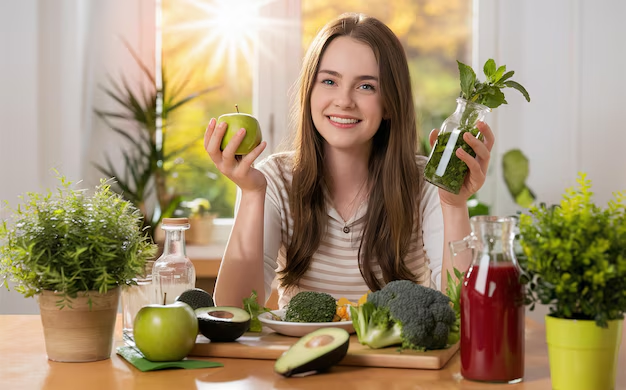The Ultimate Skin Care Diets: Eat Your Way To Glowing Skin

Achieving glowing skin is not just about external treatments; it starts from within. The ultimate skin care diets focus on nourishing your body with the right foods that promote skin health. By incorporating nutrient-dense foods into your daily meals, you can enhance your skin’s appearance, texture, and overall vitality. This comprehensive guide will explore the best dietary choices for radiant skin, backed by scientific research and expert recommendations.
Understanding the Connection Between Diet and Skin Health

Your skin is a reflection of your overall health, and what you eat plays a significant role in its appearance. A diet rich in antioxidants, vitamins, and essential nutrients promotes collagen production, fights inflammation, and protects against oxidative stress. Conversely, a diet high in processed foods and sugars can lead to inflammation and skin issues such as acne and premature aging.
Key Nutrients for Glowing Skin
- Antioxidants: These compounds protect your skin from damage caused by free radicals. Foods high in antioxidants include berries, dark chocolate, and green leafy vegetables.
- Healthy Fats: Essential fatty acids found in avocados, nuts, and fatty fish help maintain the skin’s lipid barrier, keeping it hydrated and supple.
- Vitamins: Vitamins A, C, E, and K are crucial for skin health. They support collagen production, protect against UV damage, and promote healing.
- Minerals: Zinc and selenium play vital roles in skin repair and protection from environmental stressors.
- Hydration: Staying hydrated is essential for maintaining skin elasticity and preventing dryness.
The Ultimate Skin Care Diets

To achieve glowing skin, consider incorporating the following foods into your diet:
- Fruits and Vegetables: Aim for a variety of colors to maximize nutrient intake.
- Berries: Rich in antioxidants like vitamin C.
- Tomatoes: Contain lycopene which protects against sun damage.
- Spinach: Packed with iron and vitamins that promote healthy circulation.
- Healthy Fats: Include sources of omega-3 fatty acids.
- Avocado: Provides healthy fats and vitamin E.
- Nuts (especially walnuts): A great source of omega-3s.
- Lean Proteins: Essential for collagen production.
- Fish (like salmon): High in omega-3 fatty acids.
- Eggs: Provide protein and biotin which are vital for skin health.
- Whole Grains: Opt for whole grains over refined grains to reduce inflammation.
- Quinoa: A complete protein that contains all nine essential amino acids.
- Brown rice: Offers fiber which aids digestion.
- Dairy Products: Choose low-fat options for calcium without excess fat.
- Greek yogurt: Rich in probiotics that support gut health.
- Herbs and Spices: Incorporate these for added flavor and health benefits.
- Turmeric: Contains curcumin which has anti-inflammatory properties.
- Cinnamon: Helps improve blood circulation.
Sample Daily Meal Plan for Glowing Skin
Creating a meal plan focused on skin health can be both delicious and beneficial:
- Breakfast:
- Greek yogurt topped with mixed berries and a sprinkle of flaxseeds.
- Snack:
- A handful of almonds or walnuts with an apple.
- Lunch:
- Spinach salad with cherry tomatoes, avocado, grilled chicken, topped with olive oil dressing.
- Snack:
- Carrot sticks with hummus or a smoothie made with spinach, banana, and almond milk.
- Dinner:
- Baked salmon with quinoa and steamed broccoli drizzled with lemon juice.
Hydration Matters

Water is essential for maintaining skin hydration. Aim to drink at least eight glasses of water daily. Herbal teas like green tea are also excellent choices due to their antioxidant properties.
Foods to Avoid for Better Skin
While focusing on beneficial foods is crucial, it’s equally important to limit or avoid certain items that can negatively impact your skin:
- Sugary Snacks: High sugar intake can lead to inflammation and breakouts.
- Processed Foods: Often high in trans fats which can exacerbate skin issues.
- Dairy Products (in excess): Some studies suggest a link between dairy consumption and acne flare-ups in certain individuals.
- Alcohol & Caffeine: Both can dehydrate the skin if consumed excessively.
Also Read : How Coconut Water Can Help You Achieve Healthy, Glowing Skin
Conclusion
Eating your way to glowing skin involves making informed dietary choices that nourish your body from the inside out. By focusing on a balanced diet rich in fruits, vegetables, healthy fats, lean proteins, whole grains, and adequate hydration while avoiding harmful foods, you can significantly improve your skin’s appearance. Remember that consistency is key; it may take time to see results as your body adjusts to these healthier choices.
FAQs
What are the best foods for glowing skin?
Foods rich in antioxidants like berries, healthy fats such as avocados, lean proteins like fish, and plenty of vegetables contribute significantly to glowing skin.
How long does it take to see results from dietary changes?
Typically, it takes about four to six weeks of consistent dietary changes to notice improvements in your skin’s appearance.
Can I still eat sweets while trying to improve my skin?
Moderation is key; occasional treats are fine but try to limit sugary snacks as they can lead to inflammation.
Is hydration really important for my skin?
Yes! Staying well-hydrated helps maintain elasticity and prevents dryness in the skin.
Should I consult a dermatologist about my diet?
If you have specific concerns about your skin or diet-related issues, consulting a dermatologist or nutritionist can provide personalized guidance.




